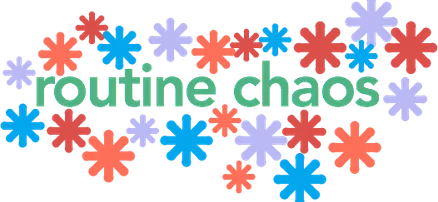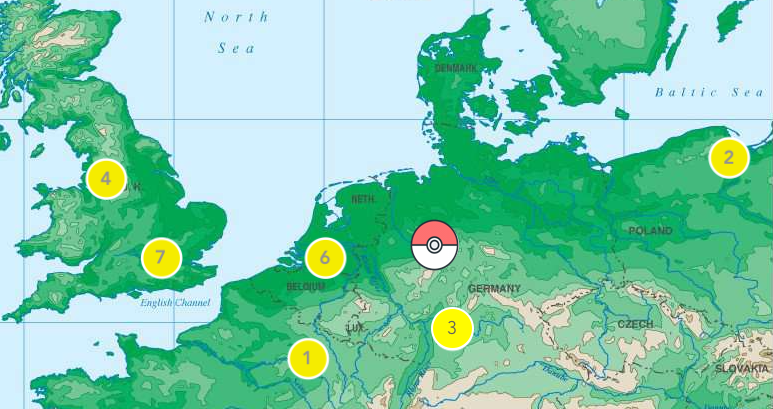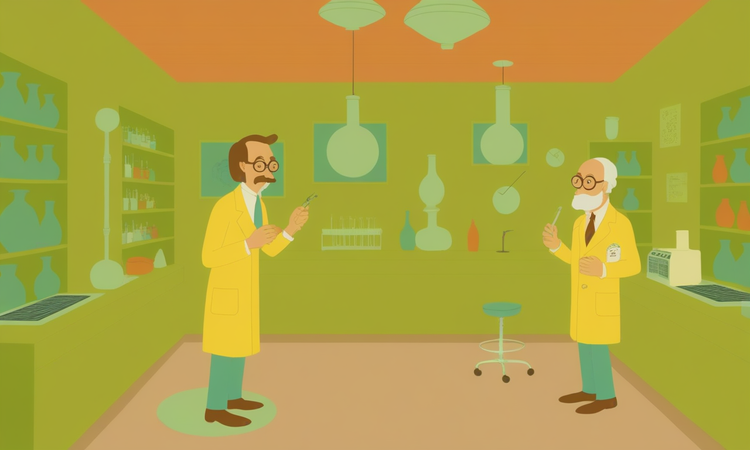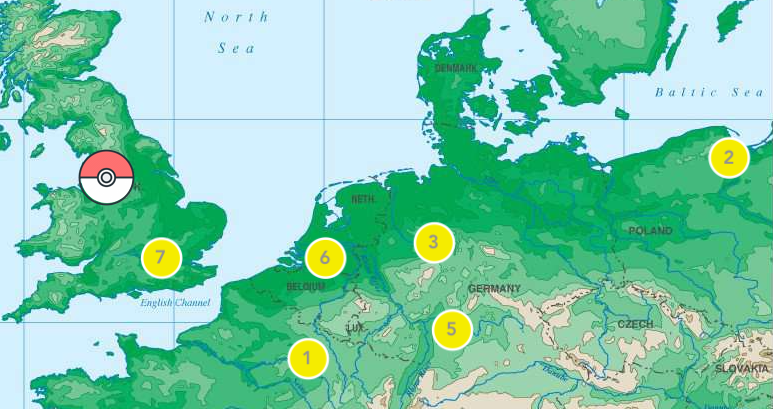The return of the random

The last newsletter about building the uncertainty muscle seems to have struck a (minor) chord. If there are other things you think I should be writing about that I’m not, slide into my inbox and let me know. I’ve always got a running backlog of topics, but I’m always keen on new ideas.
For this week, it’s more of a melange of things that have interested me lately…
Some AI in Education things that don’t suck
We are deep into the AI hype cycle, and education seems like one of the fields where there’s a lot of “excitement.” That word is in quotes because a lot of what I see people touting as exciting makes me yawn; it all seems to boil down to some excitement about AI’s potential for optimizing the transfer of information and reminds people of something that they saw in some sci-fi that they loved back in the day.
A lot of those applications are bubbling up, and I suspect a lot of them will get some immediate traction because they fit the current paradigm of schooling in the US…but they won’t prove to be transformative.
Consequently, I’m not going to link to much about that because there’s much more interesting thinking about the potential and the limitations.
- Dan Meyer has been on absolute tear lately with in-depth critique of the current promise of AI. His definition of “learning” runs so much deeper than simple knowledge transfer, so he’s rightfully skeptical of just how far that model can go .
- So how about an example of something that might be a bit richer? The team at DaVinci Schools in California have been building a tool called Project Leo that uses LLMs to create personalized capstone projects for students. If I were betting on any team to do something really transformative with AI in education, I’d bet on this team.
- I’m interested in the approach that Wichita is taking, helping teachers to understand the LLMs and then asking them to start experimenting and developing their own prompts, and using that as a jumping off point for partnership development.
- This, admittedly, is not directly about AI…but I think it poses a bunch of great thought experiments that get at how we want schools to function and how they could function differently. These kind of frames are more generative than the simple efficiency optimization exercises that tend to dominate the discourse. Try thinking about what you’d be willing to subtract from a school and how it could work differently as a result.
A pretty short listen…
You listen to the Memory Palace, right? Record scratch
Humanistic storytelling about some historical depth cuts? No? Not your thing?
Tell you what, give this recent episode a shot.
What’s it about? Awww man…it’s about the brigade of Black women who cleared out the backlog of mail to deliver to American soldiers during World War II.
No, really, I swear - it’s worth your time. It might get a little dusty around you near the end. It’s not even 15 minutes…put it on while you’re, like, grocery shopping or something.
Hey ChatGPT
Apropos of nothing, I found myself wondering what ChatGPT would have to say about “What if the Pokemon Company took over traditional education?”
So I asked…
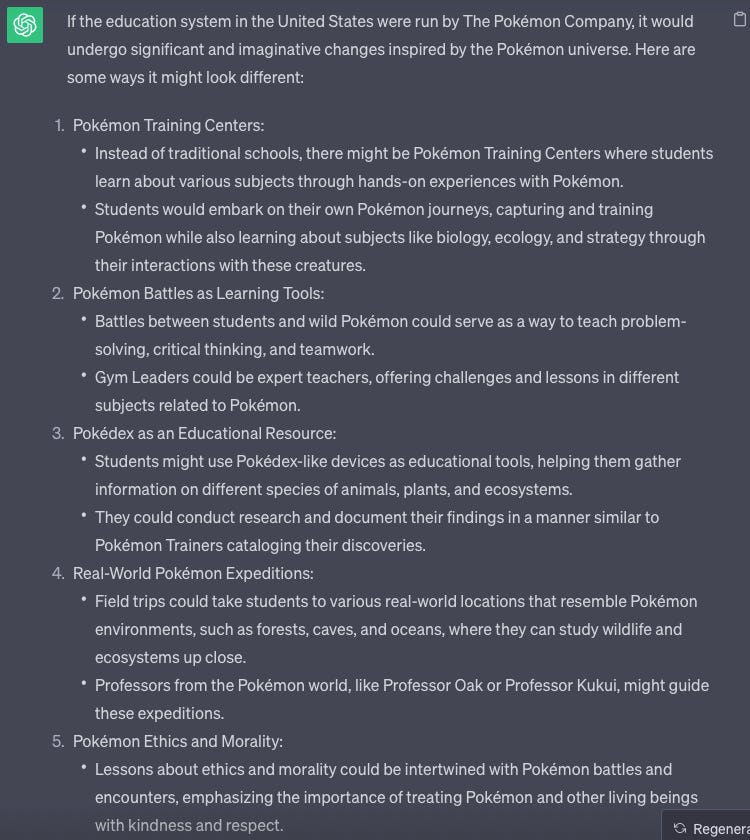
It went on for a few points longer, but needless to say maybe a bit too on the nose and not particularly compelling.
So I gave it a chance to iterate (because that’s often when things get the most interesting)…
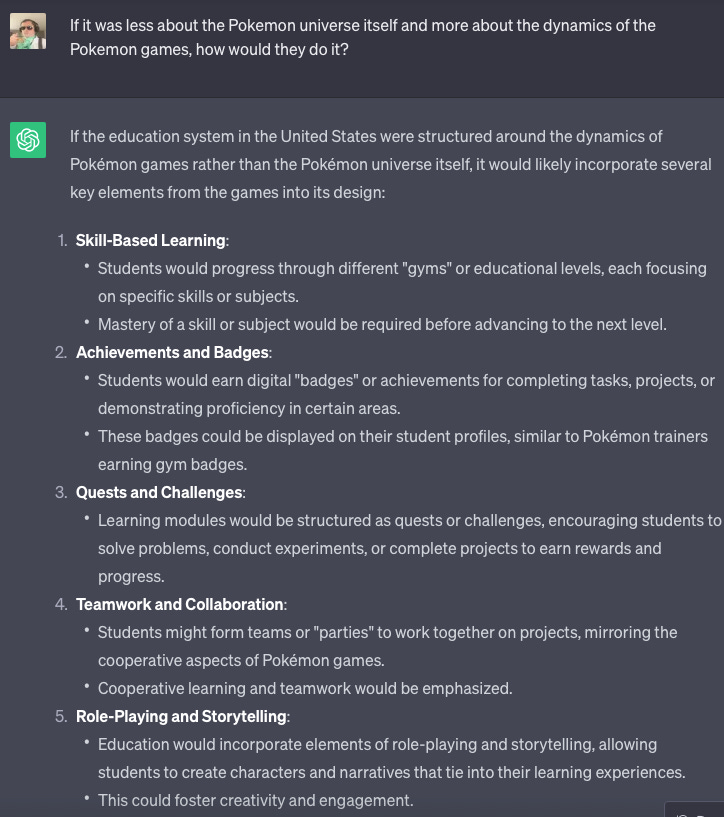
And this is a bit more interesting, but (along with the remaining points that come after) it’s still stuck in pretty trite, kind of buzzword-laden components of game-based learning.
Human intelligence, it turns out, is still good for something.
